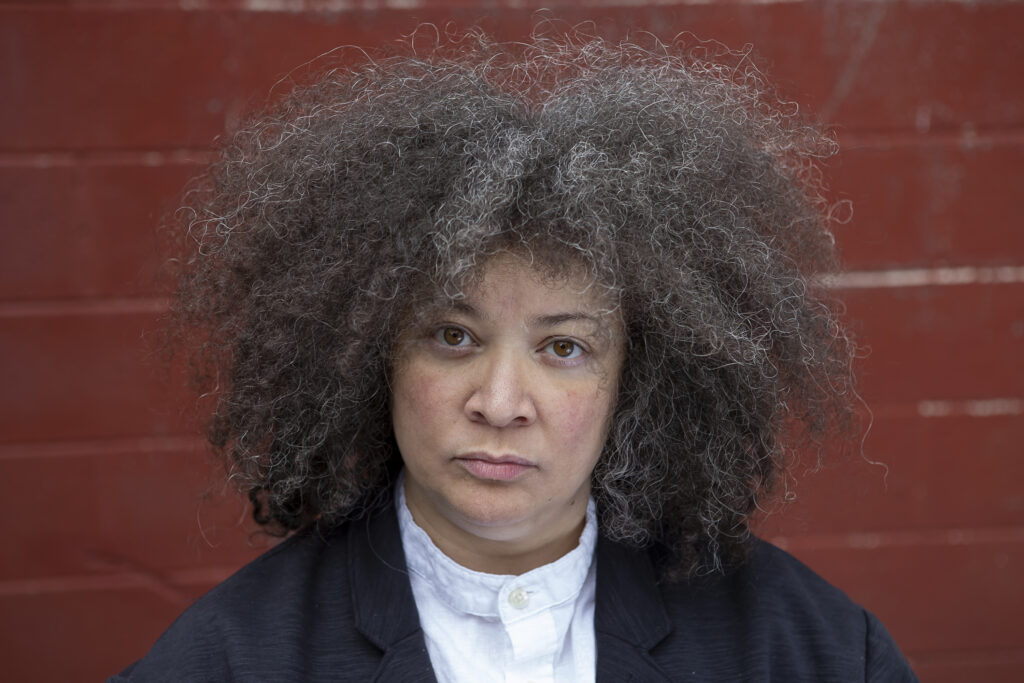Pamela Means spreads love and social justice
For internationally-touring singer-songwriter and jazz musician Pamela Means, the pandemic has just strengthened her purpose.
If anyone can speak to how tough 2020 was, it’s musicians. The loss of tours and live venues with their appreciative audiences, the loss of income, activity, travel, and fellowship with other musicians. It’s been hard. “I took for granted that I would just go out to the club and see everybody I knew and certainly that stopped,” says Means.
“It’s so deeply soulful, socially satisfying, to be in the room with people — that energy and spreading love. To have that gone, I have grieved that absence. A big part of my identity is being a performer. I took for granted that that part of me was consistently, positively reinforced by being on stage all the time.”
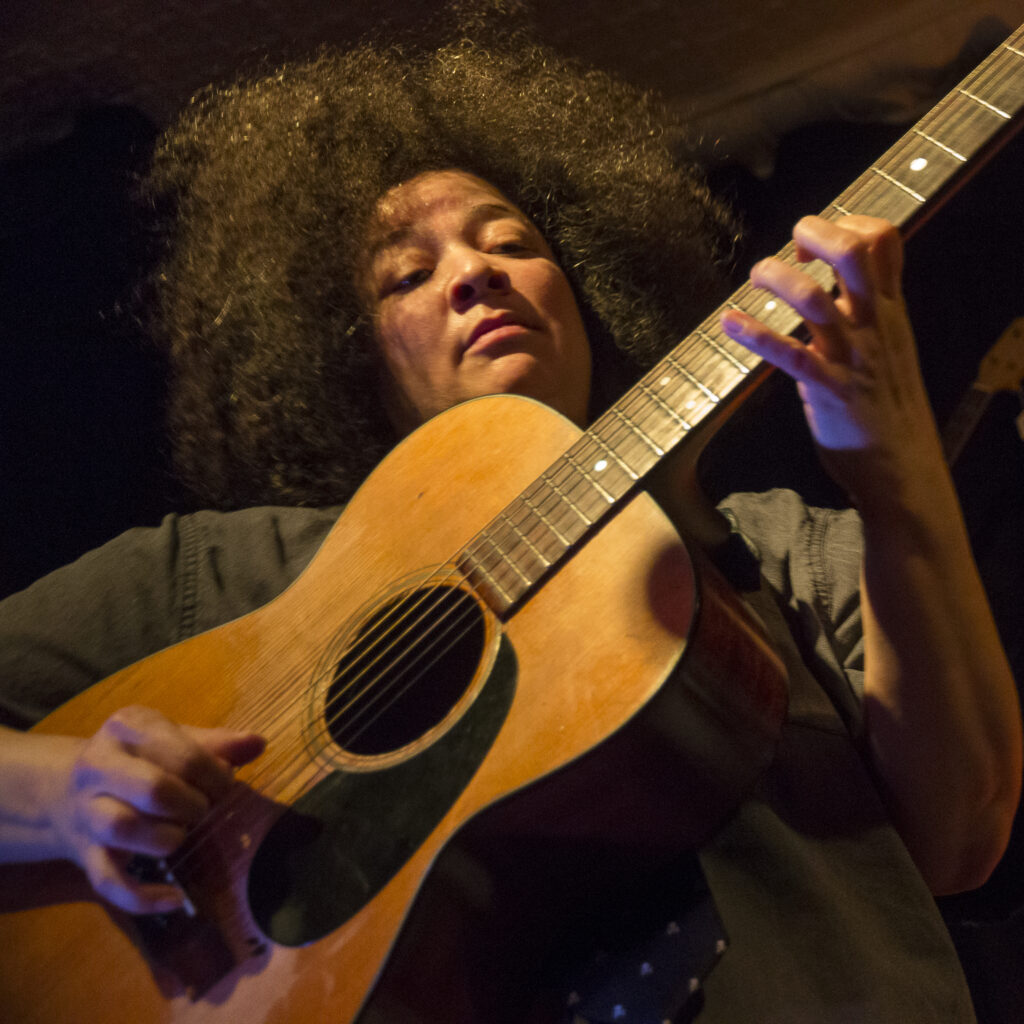
Based in Western Massachusetts where she settled after leaving Wisconsin in the 1990s, Means has found a longterm home in a community of progressive liberals, intellectuals, artistic, and creative types.
“I judge a place by if I can be all the parts of myself comfortably. Can I be queer, can I be lot more progressive, a political person, can I be a woman of color? And here in Western Mass, I can pretty much be all of those things with very little hassle.”
Means identifies as a biracial person of color and as a lesbian. “Well, it took me a long fucking time to say the word lesbian, so I didn’t want to just give it up,” she says.
Lockdown for Means has been — for many of us — an emotional journey. “The beginning was just a lot of panic and anxiety, worry, freaking out. And then, you know, humans are adaptable.”
Has there been a silver lining to the pandemic?
“My friendships, my community. I was really grateful for them, but I’m even more so now. We have to make more of an effort to stay connected to each other and that connection to my community — and therapy — helped me maintain my sanity and pulled me back from some severely anxious worry sometimes.”
But lockdown came with other pressures, such as the expectation that all this downtime would somehow translate into productive creativity. “I think we have been expected to create during lockdown and take advantage of it,” she says. “And it took me a good long number of months before I could. I just had to sit with the feelings for a long time and sift through them. I did manage to write one song that I’m proud of during the protests that were happening this summer. I was really inspired to see them take root and continue to spread.”
Means found 2020 especially harrowing not just for the loss of our connections to each other, but for the political oppression and upheaval — a culmination of years of simmering tensions. Ever since the 2016 election, Means has had to process something “infuriating, outrageous, shocking” every day.
“I think that things have been bad for a long time. And Trump is a symptom of things. Things didn’t just suddenly go bad when he got elected. Things led up to his election. And things seem to always have to get bad before they get better. I really wanted Hillary Clinton to win. And I was really angry at some people’s response. ‘Well, maybe if Trump gets elected that will push the country to act or to take things more seriously.’”
Means’ latest album Live At Northfire feels like a response to the events of 2020. But in fact it was recorded prior to the final chaotic year of Trump’s term. Two summers ago, Means was about to release a solo EP called Impeachment Now in time for the midterm elections. But Means and her band the Reparations were invited to record a live studio concert and after mixing and remastering the concert, the song “Impeachment Now” found its way onto a Covid-delayed Live at Northfire and it’s still shockingly relevant.
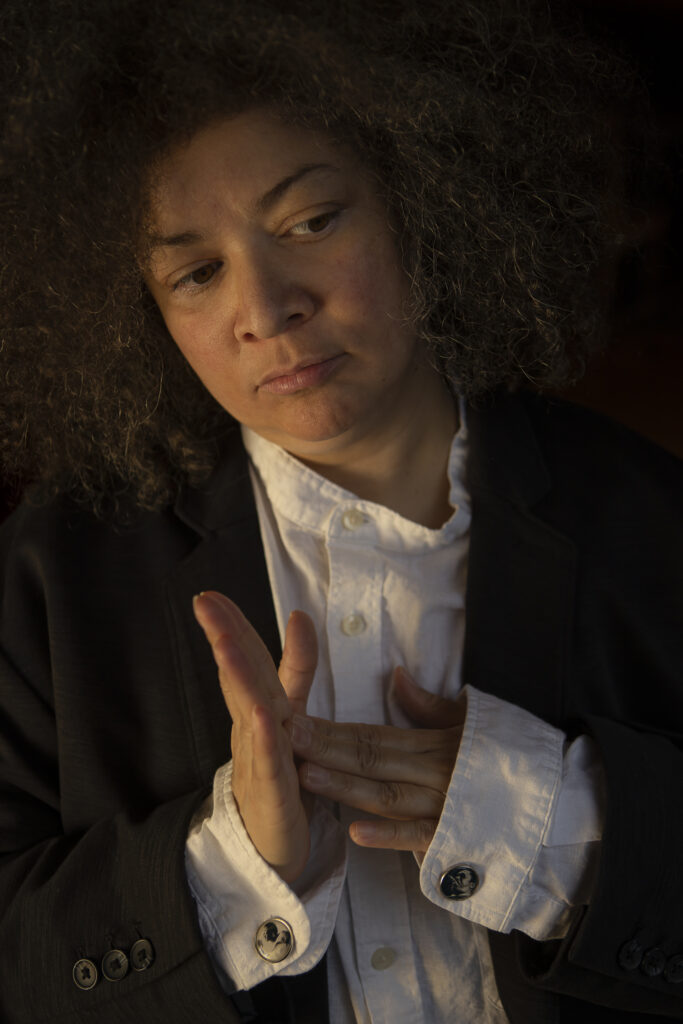
From Trump’s endorsement of racist groups at Charlottesville to his efforts to overturn the election results right now, the horror show is not yet over. “Also the discomfort of how close the election was and how many people are still denying it,” says Means. “And I think that all of that tension and hostility isn’t just going to go away. I think it’s going to take a long time. And it’s sort of like a Pandora’s box of people who are like this. Little racist, hateful groups that we know exist that weren’t in our faces, they stayed under their rocks. They’ve all come out and they’re marching down Main Street. So they’re not suddenly just going to go back to the woods. And they’ve been emboldened by Trump in this administration.”
“I don’t foresee, you know, an actual civil war,” she says. “But there already is a lot of violence, a lot of hatred, a lot of tension. It’s going to take a while for that to go away. And how the Biden Harris administration address that is to be seen. I think they’re trying. But I’m also already worried about Biden being too concerned about making nice, nice with Mitch McConnell and the Republicans versus just writing some executive orders and changing some shit around.”
Live at Northfire has distilled many of the issues of the past four years into one heartfelt, and heartbreaking album. The lyrics, which are all by Means, are concise, and pack a punch. Take the songs “The Color of the Skin” and “Hands Up”. Even though they were written prior to this year, they could have been written for George Floyd and Breonna Taylor — and countless other Black victims of police brutality. Credit to Means for crafting such songs indelibly inscribed with a plea for social justice. That unique skill, and Means’ voice, is reminiscent of Billie Holiday’s “Strange Fruit.”
She hopes to inspire others with her songwriting just as she has been inspired by the words of other writers: Audre Lorde, bell hooks, James Baldwin. Means reminds us: “Audre said, ‘You must use your own truth to empower yourself or others will use it against you.’ ”
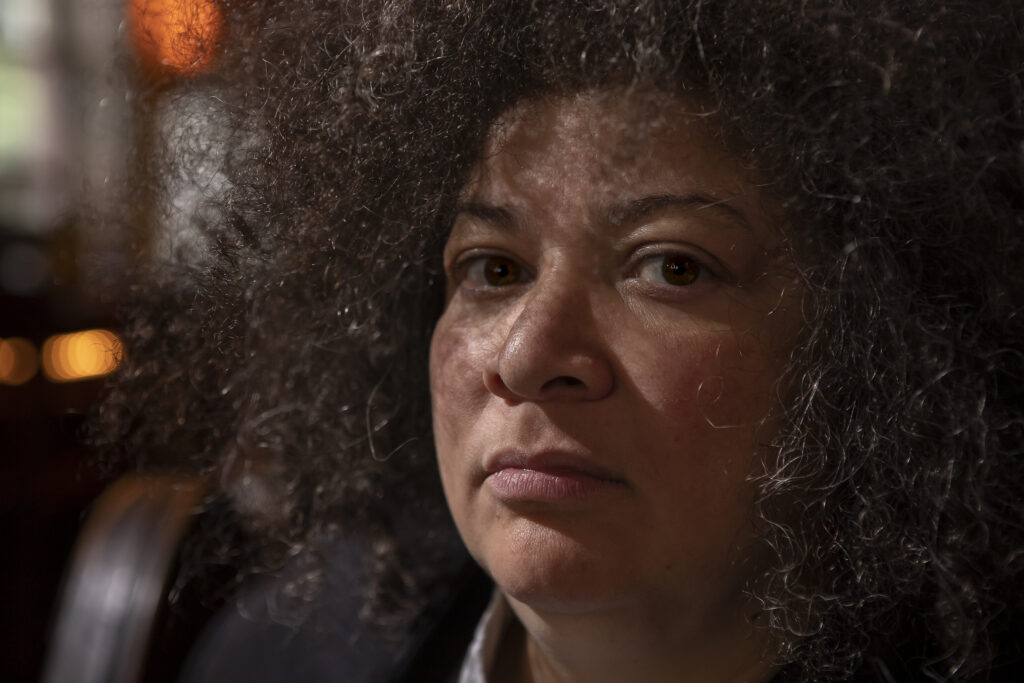
“I became a political singer-songwriter by default, because I learned that the best writing comes from writing what you know and I had to accept that what I know is being a queer biracial person from a hyper-segregated city in a racist United States of America,” she says. “So the songs that come from that view are not going to be very cheery. I just wanted to write pop bubblegum songs but I realized it was a responsibility to myself, to be honest to my own experiences.”
We don’t know what life will look like if and when things return to normal. But Means has been busy in the meantime. “I needed to be better at something than watching Netflix,” she reveals. “So I started to practice a lot. I called up my old jazz guitar teacher when I was 18 at Wisconsin Conservatory of Music. So, are you giving lessons now? I had my own students, but I went back to becoming a student and I said, Can you just make my head hurt? And he did, he threw me into the deep end, and I have been inspired to specifically to work on my jazz guitar playing and just to go deeper. I’ve always wanted to be a good guitar player. I took me a long time to get the courage and practice to play my own guitar solos, and now I can do that.”
If you’re new to Pamela Means, start with her 2007 jazz album, Jazz Project Vol. 1, which includes classics such as “All of Me,” and her voice which is smooth and rich with just the right edge. Her cover of “My Funny Valentine” somehow becomes a ballad of unrequited love. “I remember when I learned the word unrequited. I was about 13. I thought, Oh, here we go!” she laughs.
“I studied jazz at the Wisconsin Conservatory when I was 18. I studied mainly classical guitar. I heard about a jazz studies program. I didn’t even really like jazz music at the time, except for maybe a few Billie Holiday songs, which I think I compartmentalized as not really jazz. But fast forward to about a decade after that. I saw a documentary about John Coltrane and just the discipline, the passion, the work ethic, the skill, the knowledge that every single jazz musician must have — it clicked.
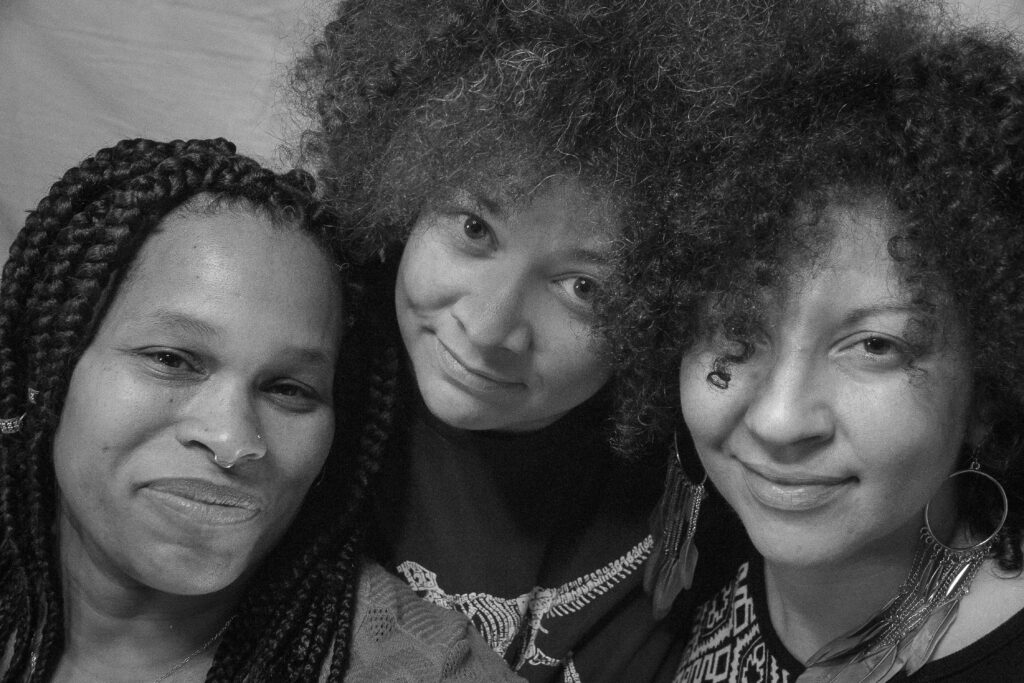
“And then I did more study and learned that jazz was the first genre that racially integrated musicians on the stage.”
And she’s continued with her own musicians, The Reparations — Blair and Ishay. “I just wanted to have a band of women, women of color, and we make a statement before we even say a word, and to have these three voices singing the songs that I wrote, it’s just it’s incredible. It’s spiritual. It’s powerful. It’s celebratory. It’s damning. It’s all of the things and it’s not just a gig, but an event and a sanctuary for a community and for all of our fringe identities to come together and celebrate and dance.”
Surviving this year may just turn out to be a continuation of a very long journey — which is a victory. What has she learned this year? “Well, I know myself a lot more,” she says. “What I have often said about getting older is that I hate it. But what has come is, a very short list, but powerful for me. And that is becoming a better person in the world and a better musician, a better artist in my work.
“Knowing myself and being able to understand and process a situation. Say what I need to say, to assert myself and hopefully to say a truth and inspire the other person. Not being invested in those expectations of what someone else will hear. Say what I need to say for myself so I don’t go home and eat the anger and the rage. I have more love and compassion for myself and for the world.”
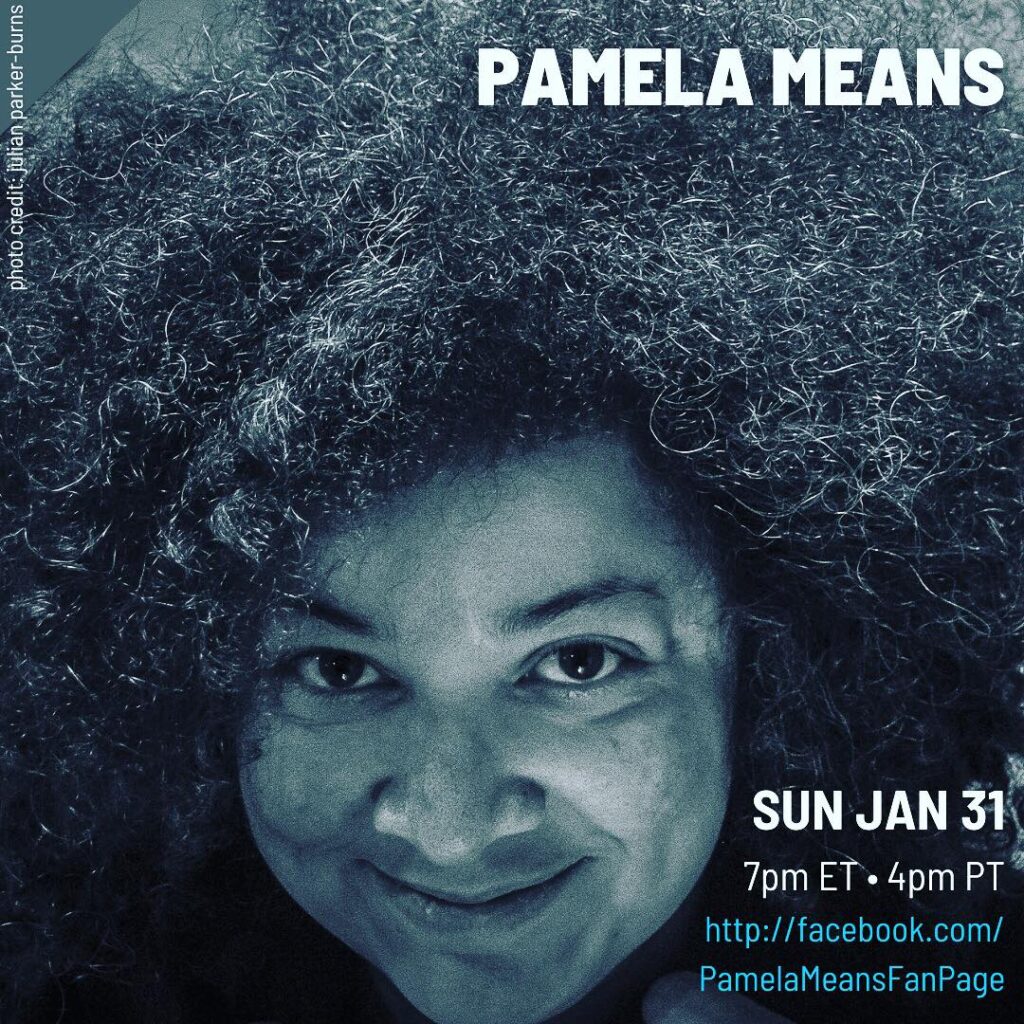
PAMELA MEANS IN CONCERT
We are going to end January with a bang — and celebrate the inauguration of President Biden with a Facebook Live concert by Pamela Means on January 31 at 7pm/4pm.

